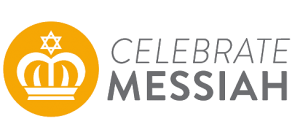 https://www.celebratemessiah.com.au/wp-content/uploads/2017/05/Shavout-2017-background.jpg
3456
5184
Web Master
https://www.celebratemessiah.com.au/wp-content/uploads/2023/05/CM-Transparent-Logo-2-300x138-2.png
Web Master2017-05-30 16:32:322017-05-31 08:25:57What holiday do Jews and Christians have in common?
https://www.celebratemessiah.com.au/wp-content/uploads/2017/05/Shavout-2017-background.jpg
3456
5184
Web Master
https://www.celebratemessiah.com.au/wp-content/uploads/2023/05/CM-Transparent-Logo-2-300x138-2.png
Web Master2017-05-30 16:32:322017-05-31 08:25:57What holiday do Jews and Christians have in common?Earlier this month we celebrated Pentecost. This holiday, as described in Acts 2, is the day about seven weeks after Yeshua (Jesus)’ resurrection when many disciples received the Holy Spirit in Jerusalem. They spoke in different languages and all the listeners heard them in their own languages.
You may not know the reason why there were so many people in Jerusalem who spoke different languages – it was because the Jewish holiday of Shavuot was the same day as Pentecost. In fact, Pentecost is simply the Greek way to say Shavuot. Pente means 50 and the holiday of Shavuot occurs seven weeks and a day (50 days) after Passover. In the Torah, God had commanded a pilgrimage for Shavuot – so if you were an adult Jewish male, it was your duty to go up to Jerusalem on this holiday.
According to the Torah, Shavuot was a harvest holiday. A faithful person had to bring offerings of the first fruits of the harvest to the Lord, to acknowledge that more was coming because of the Lord’s providence. According to Jewish tradition, Shavuot was also the day on which God gave Moses the Torah on Mount Sinai. This date is believed to be 50 days after the Passover in which the Lord freed the Hebrews from Egypt.
According to Christian beliefs, Pentecost is the day when the baptism of the Holy Spirit, promised by Yeshua, came upon believers: “And being assembled together with them, He commanded them not to depart from Jerusalem, but to wait for the Promise of the Father, ‘which,’ He said, ‘you have heard from Me; for John truly baptized with water, but you shall be baptized with the Holy Spirit not many days from now.'” (Acts 1:4-5)
This is very interesting, because God gave the Torah on stone tablets millennia ago – perhaps on this same day of the year – and after Yeshua, the Holy Spirit came and wrote the law of God on our hearts. The giving of the Holy Spirit on Pentecost was a gift from God, fulfilling the foreshadowing on Mount Sinai as well as His promises throughout the Old Testament.
What is really fascinating is what Jesus’ disciple Peter did in the wake of receiving the Holy Spirit in Jerusalem. I, for one, wish I had the ability to do what he did – perhaps with a bit more faith and courage, I could!
When the people who had not received the Holy Spirit accused those who did receive it of being drunk, Peter took the opportunity to tell the whole gathering about Yeshua. He delivered a series of sermons recorded in the chapters following Acts 2, in which he describes the work, greatness, and salvation of Yeshua. He also implores the people to not fall prey to the wicked generation around them. The Bible says that the people were in awe and many came to faith.
Peter then healed a lame man and gave the credit to the work of Yeshua. When everybody saw that the once-crippled man was walking, Peter began once again to proclaim the Gospel and explain how Yeshua had fulfilled the words of the prophets.
Peter understood that something new and mighty was underway. With the work of the Holy Spirit, God was making the ground fertile for ministry and proclamation. Peter recognized where God was working and he took courageous action – and God used him to reach many who did not believe in Jesus.
I pray that we can be like Peter – that we can recognize when and where God is moving so that we can get involved in His work.
Contributed by Ryan K.
Join our mailing list today and stay up to date with all the latest news!
More Ministry News
 https://www.celebratemessiah.com.au/wp-content/uploads/2017/05/Shavout-2017-background.jpg
3456
5184
Web Master
https://www.celebratemessiah.com.au/wp-content/uploads/2023/05/CM-Transparent-Logo-2-300x138-2.png
Web Master2017-05-30 16:32:322017-05-31 08:25:57What holiday do Jews and Christians have in common?
https://www.celebratemessiah.com.au/wp-content/uploads/2017/05/Shavout-2017-background.jpg
3456
5184
Web Master
https://www.celebratemessiah.com.au/wp-content/uploads/2023/05/CM-Transparent-Logo-2-300x138-2.png
Web Master2017-05-30 16:32:322017-05-31 08:25:57What holiday do Jews and Christians have in common? https://www.celebratemessiah.com.au/wp-content/uploads/2013/05/Wheat-Field.jpg
800
1200
Web Master
https://www.celebratemessiah.com.au/wp-content/uploads/2023/05/CM-Transparent-Logo-2-300x138-2.png
Web Master2013-05-19 19:09:352017-05-16 10:55:39Celebrating Shavuot in Israel
https://www.celebratemessiah.com.au/wp-content/uploads/2013/05/Wheat-Field.jpg
800
1200
Web Master
https://www.celebratemessiah.com.au/wp-content/uploads/2023/05/CM-Transparent-Logo-2-300x138-2.png
Web Master2013-05-19 19:09:352017-05-16 10:55:39Celebrating Shavuot in Israel https://www.celebratemessiah.com.au/wp-content/uploads/2016/03/Shavuot.jpg
1144
2000
Web Master
https://www.celebratemessiah.com.au/wp-content/uploads/2023/05/CM-Transparent-Logo-2-300x138-2.png
Web Master2013-05-19 19:08:172017-05-24 11:26:23Shavuot in the New Covenant
https://www.celebratemessiah.com.au/wp-content/uploads/2016/03/Shavuot.jpg
1144
2000
Web Master
https://www.celebratemessiah.com.au/wp-content/uploads/2023/05/CM-Transparent-Logo-2-300x138-2.png
Web Master2013-05-19 19:08:172017-05-24 11:26:23Shavuot in the New CovenantSign Up for Our Email Newsletter
Sign up for Celebrate Messiah email newsletters to receive more information on our ministries, events, and outreach to the Jewish people around the world:


